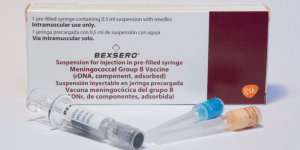Description
Conflicts are an inevitable part of life, occurring in various settings, including the workplace, personal relationships, and within communities. The ability to effectively resolve conflicts is a crucial skill that can lead to healthier relationships, increased productivity, and a more harmonious environment. This short online Conflict Resolution in Healthcare course aims to equip learners with the essential knowledge and practical techniques needed to navigate conflicts constructively and achieve positive outcomes.
What does the Conflict Resolution in Healthcare Course cover?
- Understanding Conflict: Get to grips with what conflict really means, the different types it comes in, and what usually sparks it off. Discover how conflicts can shake up both people and organisations, and uncover the ripple effects they make. Dive into the many ways we can patch things up when conflicts arise, and find out what might work best in different situations.
- Effective Communication Strategies: Learn how to speak and use body language to make your messages clear and easy to understand. Understand how to communicate well with people from different cultures, respecting their customs and ways of speaking.
- Utilising Communication Models: Explore three communication models to learn how to prevent conflicts from happening or getting worse.
- Recognising Behaviour Patterns and Warning Signs and Staying Safe: Identify the procedural and environmental factors affecting conflict situations and recognise their importance in decision making. Identify warning signs and danger signals during conflicts, including signs that could indicate a potential physical attack. Understand the importance of keeping a safe distance in conflict situations.
- Providing Support: Recognise what to do straight after a violent incident, like helping anyone hurt, ensuring safety, reporting the incident, and seeking help. Understand how violence can affect people in the short and long term, including physical injuries, emotional reactions, and challenges in daily life and relationships. Discover various support options available in the UK, such as peer support, counselling, NHS mental health services, support groups, helplines, and charitable organisations, to help those affected by conflict, violence, and trauma.
Why take this course?
The learning aims and associated outcomes are based on de-escalation techniques. The aims address the way one communicates, patterns of behaviour, recognition of warning signs, impact factors and preventative strategies. At the end of the training learners should be able to:
- Uncover what often sparks conflicts and recognise the various stages of conflict
- Grasp the key principles and significance of resolving conflicts in different environments
- Master the art of communication techniques vital for resolving conflicts effectively
- Spot the early signs of conflicts brewing and take proactive steps to prevent them
- Discover strategies to ensure safety during conflicts and appreciate the importance of providing support afterwards
CPD hours
The course provides 1 hour of CPD
What delegates say about our courses
“Course is very useful & practical. Well presented and clear and layout of site is good. Graphics very helpful.”
Peter Hughes






Reviews
There are no reviews yet.